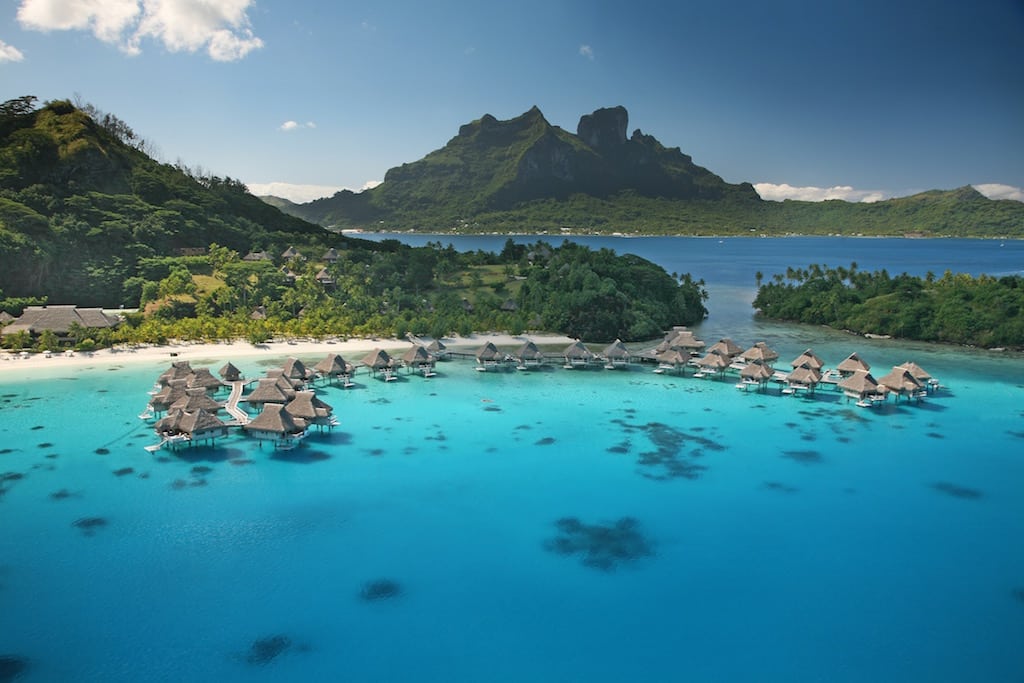Skift Take
Because the Tahitian islands are small and tightly clustered, the region provides a unique opportunity to connect multiple communities to create a smart nation economy. It could also serve as a model for other countries, like those in the Caribbean, with GDPs over-reliant on tourism.
The French Polynesia Ministry of Tourism announced a new partnership this month with Tahiti Innovation Labs and Florida-based Travel Startups Incubator to develop the Tahiti Smart Tourism initiative.
The long-term project goals include expanding free Wi-Fi access beyond the resorts, boosting visitor arrivals by digitalizing the guest experience, and developing new opportunities for local job growth and economic development.
Located 2,700 miles almost due south of Hawaii, French Polynesia consists of the main island of Tahiti, the primary tourism islands of Moorea and Bora Bora, and more than 100 lesser islands and atolls, many of which are uninhabited. Collectively the islands are often referred to simply as “Tahiti,” promoted by Tahiti Tourisme.
Tourism in French Polynesia has dropped significantly in the last decade from roughly 260,000 arrivals to 180,000, which is what’s driving this new tech initiative. Because the islands are small and clustered relatively close together, Tahiti Innovation Labs envisions the potential to create a “smart nation” somewhat along the same model as Singapore to help turn around the visitor economy.
The strategy hinges on developing a more robust, multi-layered Internet backbone. The Tahitian islands have had broadband access since the installation of fiber optic connectivity to Hawaii in 2010. To help boost the quality and reach of service, local telcom companies such as Smart Tahiti Networks and Open Garden are developing peer-to-peer “mesh” networks that don’t require cellular service, which instead take advantage of apps like FireChat.
Thierry Lehartel, cofounder of Tahiti Innovation Labs and Smart Tahiti Networks, says the islands need to develop a digital ecosystem to attract next generation consumers who rely on fast and free Internet to navigate their travel journey and communicate with their social networks.
Through the Ministry’s Smart Tourism initiative, if visitors can easily connect anywhere without any cost barriers, that will pave the way for a full array of new tech-oriented travel experiences. These include geo-location apps for self-guided tours, friend-finder apps, on-island instant messaging, and 24/7 assistance networks in multiple languages.
“The country has been searching for a way to build visitation, but the big question is what do we do to integrate the digital economy?” says Lehartel. “We’re obviously a consumer of it, but how could it have a role in driving innovation? We think, looking at the IoT (Internet of Things) space, Tahiti can play a role as an incubator and as a case study for how to develop a smart nation.”
He adds that the Ministry of Tourism is also interested in the potential of the data generated by new digital tools to better understand tourism traffic flows, quality issues, and deal with any type of emergency. Today, the Ministry is still relying mostly on passenger exit surveys for consumer feedback.
“The government is also investing considerable funding to promote to Chinese visitors, who are usually quite young and hyper-connected,” Lehartel says. “Giving the Chinese tourists the ability to access their WeChat and Weibo accounts at any time, seamlessly, will generate substantially more user-generated content for China’s social networks.”
Startup Island Nation
With the infrastructure to support a global tech hub under development in French Polynesia, Travel Startups Incubator is providing the first travel tech companies to help update the visitor experience. A sample of them include:
- Proxce provides straight-to-room check-in and keyless entry functionality
- Tutton connects users with friends of friends in-destination based on expanded social media networks
- Chroniclers of Earth is a platform to create digital, shareable travel journals
Lehartel says that technology companies will be chosen based on how they can solve pain points in the customer journey. For example, many visitors to Tahiti book multiple hotels on different islands, but a lot of time is wasted checking in and out each time. The goal is to develop a single registration experience at the beginning of a trip that all of the hotels recognize.
At the same time, connectivity is spotty in some places around the major islands. By improving and expanding the Wi-Fi cloud, that opens up the opportunity for local independent businesses to gain more exposure for their more localized travel experiences.
“One thing we want to create is more authenticity, because today you have to follow a tour operator package, but there’s a lot more things to do,” explains Lehartel. “So how do you know what to do if you don’t want to follow the path everyone else is doing? We need to open up to a different segment who wants to travel differently, and I think technology is a key ingredient to help them do so.”
Matt Zito, managing partner of Travel Startups Incubator, emphasizes that youth in Tahiti today have few career opportunities in the tourism industry beyond working in a resort or tour company, so the Smart Tourism Tahiti initiative offers a way to expand local learning options.
“This is a great opportunity for our startups to have access to a country-wide platform, but ultimately it’s going to impact the local community,” he says. “That’s a major part of the plan.”
Presently, according to the CIA World Factbook, over 80% of the workforce in French Polynesia is employed in the tourism sector. The smart nation identity advances Tahiti’s visitor and business brands to help diversify the economy, drive economic growth, and attract new tech events and corporate investment from around the Pacific Rim.
“The last innovation Tahiti did in tourism was the overwater bungalow in the 1960s, and we haven’t really done anything since,” sums up Lehartel. “Here we’re on the cusp of doing something new with a pragmatic awareness of what we can and cannot do.”
The Daily Newsletter
Our daily coverage of the global travel industry. Written by editors and analysts from across Skift’s brands.
Have a confidential tip for Skift? Get in touch
Photo credit: Overwater bungalows at Hilton Bora Bora Nui Resort & Spa. Tahiti Tourisme

